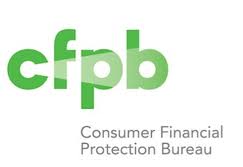 In response to a letter from numerous Senators, and in response to “considerable input” from other members of Congress and various trade groups, the Consumer Financial Protection Bureau today announced that it will employ leniency in relation to implementation of the TILA-RESPA Integrated Disclosure Rule.
In response to a letter from numerous Senators, and in response to “considerable input” from other members of Congress and various trade groups, the Consumer Financial Protection Bureau today announced that it will employ leniency in relation to implementation of the TILA-RESPA Integrated Disclosure Rule.
The CFPB’s letter states that the CFPB “will be sensitive to the progress made by those entities that have squarely focused on making good-faith efforts to come into compliance with the Rule on time,” and that the approach “is consistent with the approach we took to implementation of the Title XN mortgage rules in the early months after the effective dates in January 2014.”
However, the letter stops short of providing a formal grace period, “hold harmless” period, or stay of enforcement.
More specifically, the letter states:
“I have spoken with our fellow regulators to clarify that our oversight of the implementation of the Rule will be sensitive to the progress made by those entities that have squarely focused on making good-faith efforts to come into compliance with the Rule on time. My statement here of this approach is intended to ease some of the concerns we have heard about this transition to new processes in the coming months and is consistent with the approach we took to implementation of the Title XN mortgage rules in the early months after the effective dates in January 2014, which has worked out well.”
As you may recall, the CFPB stated in its “Supervisory Highlights” report for Winter of 2015 that “[m]ost of the Title XIV rules took effect in January 2014 and the CFPB commenced supervisory examinations for compliance four months after the effective date.” Our update as to the CFPB’s “Supervisory Highlights (Winter 2015)” report is available here: Link to Prior Update.


